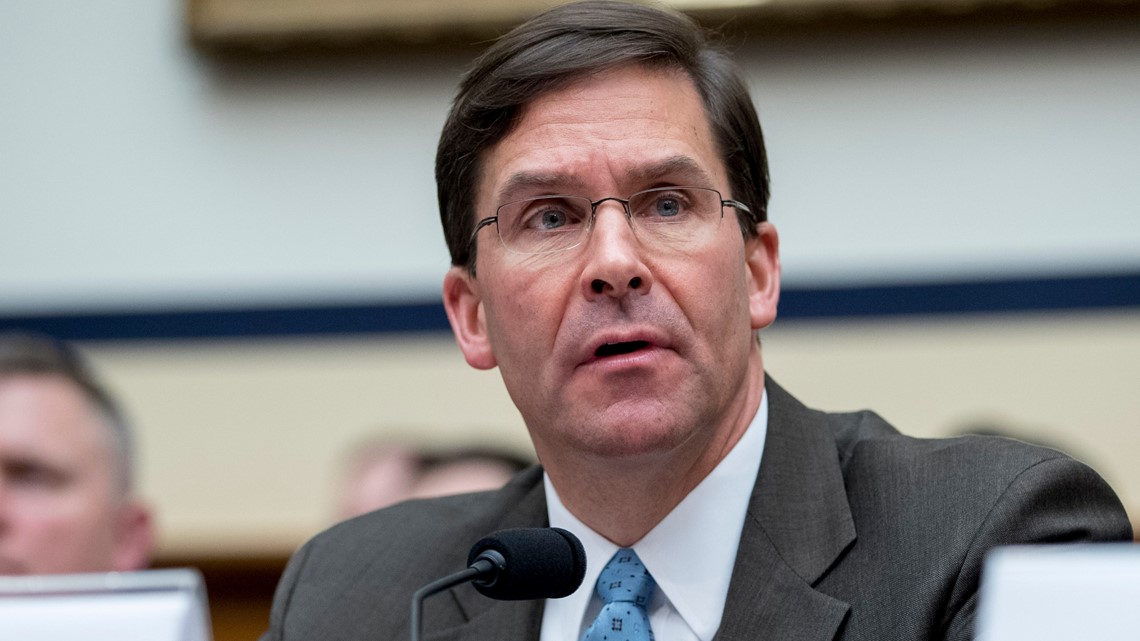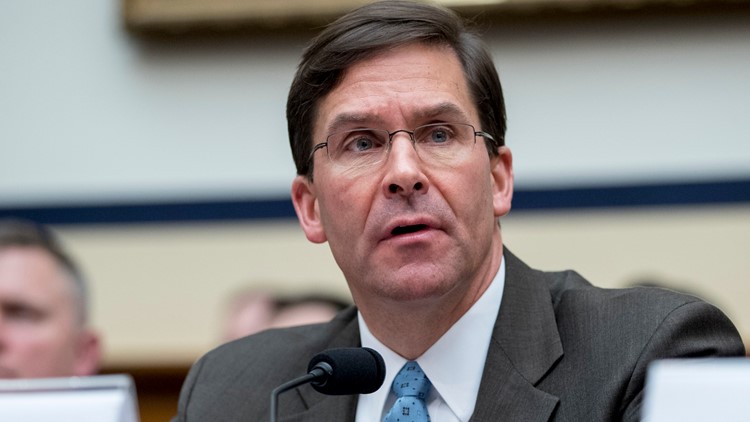WASHINGTON — Amid growing chaos in Syria, President Donald Trump has ordered all U.S. troops to withdraw from the country's north to avoid a bloody conflict between Turkey and U.S.-backed Kurdish fighters that "gets worse by the hour," Defense Secretary Mark Esper said Sunday.
Esper, who spoke in two TV interviews, did not say the approximately 1,000 U.S. troops in Syria are leaving the country entirely. Trump's national security team planned to meet later Sunday to assess the situation, Esper said, as U.S. officials continue to urge Turkish President Recep Tayyip Erdogan to halt his incursion.
Asked whether he thought Turkey, a NATO ally, would deliberately attack American troops in Syria, Esper said, "I don't know whether they would or wouldn't."
He cited an incident on Friday in which a small number of U.S. troops fell under artillery fire at an observation post in the north. Esper called that an example of "indiscriminate fire" coming close to Americans, adding it was unclear whether that was an accident.
Esper said he spoke to Trump on Saturday night amid growing signs that the Turkish invasion, which began Wednesday, was growing more dangerous.
"In the last 24 hours, we learned that they (the Turks) likely intend to expand their attack further south than originally planned — and to the west," Esper said.
The U.S. also has come to believe that the Kurds are attempting to "cut a deal" with the Syrian army and Russia to counter the invading Turks, he said. As a result, Trump "directed that we begin a deliberate withdrawal of forces from northern Syria," Esper said.
Trump, in a tweet Sunday, said: "Very smart not to be involved in the intense fighting along the Turkish Border, for a change. Those that mistakenly got us into the Middle East Wars are still pushing to fight. They have no idea what a bad decision they have made. Why are they not asking for a Declaration of War?"
Esper said he would not discuss a timeline for the U.S. pullback, but said it would be done "as safely and quickly as possible."
Esper did not say how many U.S. troops will leave the north, but he says they represent most of the 1,000 troops in Syria.


The Americans have been working for five years with a Kurd-led Syrian group known as the Syrian Democratic Forces to combat the Islamic State group. Turkey has long objected to the U.S.-Kurd alliance because Turkey considers elements of that force to be terrorists tied to an insurgency inside Turkey.
The Pentagon had said before the operation began that the U.S. military would not support it, and the U.S. pulled about 30 special operations troops out of observation posts along the invasion route on the Syrian border.
Esper said he was aware of reports of hundreds of IS prisoners escaping as a result of the Turkish invasion and of atrocities being committed against Syrian Kurds by members of a Turkish-supported Syrian Arab militia.
"It gets worse by the hour," Esper said. "These are all the exact things" that U.S. officials warned Erdogan would likely happen by ignoring U.S. urgings not to invade northern Syria.
Esper said there was "no way" U.S. forces could have stopped the Turks, who assembled a force of about 15,000 troops on the Syrian border, supported by air power.
"We did not sign up to fight Turkey, a longstanding NATO ally, on behalf of the (Kurdish-led Syrian Democratic Forces). This is a terrible situation," he said.
Treasury Secretary Steven Mnuchin held out the possibility of quick action to impose economic sanctions on Turkey, a move that Trump has repeatedly threatened if the Turks were to push too far into Syria.
"We'll be taking in new information and we're ready to go at a moment's notice to put on sanctions," Mnuchin said. "Now we have warned the Turks. ... They know what we will do if they don't stop these activities."
Esper appeared on CBS' "Face the Nation" and "Fox News Sunday." Mnuchin was interviewed on ABC's "This Week."


